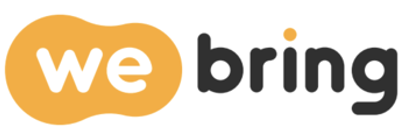When attending a job interview at a Korean company, it’s common to hear the interviewer say, “Please give us a one-minute self-introduction.” This moment plays a crucial role in shaping the applicant’s first impression and setting the tone for the interview. For foreigners, pronunciation, tone, and content structure in Korean can all be sources of stress. In this article, we’ll share tips on crafting a one-minute self-introduction that aligns with Korean corporate culture. How can you create a short yet impactful self-introduction?
1) Why Is the One-Minute Self-Introduction Important?
Capture the Interviewer’s Attention in the First 30 Seconds
Interviews are time-limited, so the interviewer must quickly grasp who the candidate is. The “one-minute self-introduction” offers an opportunity for the applicant to concisely express themselves. A well-prepared introduction gives a quick yet clear picture of “who this person is, what their experience is, and what strengths they offer,” which can steer the interviewer’s follow-up questions. On the other hand, speaking off the cuff without preparation can lead to rambling or unclear messaging.
Korean Corporate Culture: Balance Humility with Key Selling Points
In Korean job interviews, overly arrogant remarks or self-praise are often frowned upon. At the same time, being too shy and downplaying your abilities doesn’t give the right impression either. Ideally, show “humility with confidence.” In your one-minute self-introduction, find a balance between expressing your skills clearly and demonstrating genuine interest in the company.

2) Key Components of a One-Minute Self-Introduction
(1) Greeting & Name
Start with a simple greeting and your name in polite Korean: “Annyeong hasimnikka, jeoneun ~eseo on ~~rago hamnida.” Even a brief respectful greeting in Korean by a foreigner tends to be viewed favorably. Since you only have a minute, don’t go into needless background details—be concise and stick to the essentials.
(2) Summary of Core Experience or Expertise
Immediately follow with one or two sentences about your primary area of expertise, work experience, or academic background. For example: “I worked as a data analyst for three years at an IT startup and completed my graduate studies in Korea.” This quickly delivers key information such as your field, duration, and accomplishments.
(3) Motivation & Personal Strengths
Add a brief comment about why you’re interested in the company or highlight a personality trait such as being challenge-oriented or a team player. For example: “I want to combine Korea’s advanced technology with my AI research background to drive innovation. I believe my analytical skills and collaborative mindset will contribute to your company’s growth.”
(4) Wrap-Up: “I Look Forward to Working With You”
End your introduction with a phrase such as “Thank you” or “I hope this leads to a great opportunity.” Practice timing to ensure your delivery fits within 50 to 60 seconds.
3) Sample Interview Questions and How to Prepare
Question 1: “Why Did You Apply to Our Company?”
This is a classic follow-up question to the self-introduction. Offer a specific reason like, “Your global focus aligns with my career background,” or “I want to apply my K-pop industry experience to your entertainment sector.” Expand on points you briefly mentioned earlier during your self-introduction.
Question 2: “Do You Plan to Work Long-Term in Korea?”
This is a common question for foreign applicants. You can demonstrate your cultural adaptation through experiences or mention studying for TOPIK. An optimistic answer could be: “I see great long-term potential and am preparing for visa renewal. I’m also continuously improving my Korean language skills.”
Question 3: “Are You Okay With Teamwork or Company Dinners (Hoesik)?”
Due to Korea’s corporate culture—including hierarchy, staff dinners, or overtime work—interviewers may ask this. You can answer truthfully, for instance: “I value teamwork and I’m ready to learn and respect cultural differences.” Or say, “Although I prefer not to have excessive staff dinners for productivity reasons, I will participate proactively if needed.”
4) Real Examples of One-Minute Self-Introductions
Example 1: IT Developer
“Hello, I’m A from the United States. I majored in Computer Science and have six months of hands-on web development experience as an intern at a Korean startup. That experience helped me understand Korea’s fast-paced development environment and teamwork culture. I specialize in backend architecture and database optimization, and I believe my skills can contribute to your company’s global expansion. I’ve adjusted well to life in Korea and my Korean proficiency is around TOPIK Level 4, allowing for basic communication. With a passion for learning new technologies, I look forward to growing with your company. Thank you.”
Example 2: English Teacher
“Hi, I’m B from the UK. I studied English Education and worked as a teaching assistant at a local primary school for two years. I became intrigued by Korea’s strong passion for education and high demand for English learning. Last year, I came to Korea on a working holiday visa and gave guest lessons at several academies. During this time, I gained understanding of Korean students’ learning styles and culture. I hope to make classes engaging and fun with my creative teaching style. Your academy’s educational philosophy resonates with me, and I aim to contribute to textbook development and online content creation. Thank you.”
5) Etiquette and Manners in Korean Workplace Culture
Interview Etiquette
When entering the interview room, knock first, say “Excuse me” in Korean, and then step in. Offering a light bow is enough—an overly deep 90-degree bow may seem awkward. Only sit down after the interviewer invites you to do so.
Speech and Honorifics
When speaking in Korean, use formal language endings such as “hamnida” or “haetssumnida.” Even if the interviewer says you can speak casually, it’s better to maintain formal speech during the interview. If the interview is in English, make sure your tone isn’t too casual by Korean business standards.
Closing Courtesies
At the end of the interview, say something like “Thank you for your time” while leaving. A slight bow when parting can leave a lasting impression. Korean interviewers generally view polite behavior very positively.
Conclusion: A Prepared One-Minute Self-Introduction Can Make or Break Your Interview
One-minute self-introductions have become a standard in Korean job interviews. They are a golden opportunity to concisely present your background, strengths, motivation, and cultural adaptability. Especially for foreign candidates, minor imperfections in Korean pronunciation or grammar are acceptable—but the key is delivering with clarity and confidence through prior practice.
What companies really want is not a flashy resume but someone who fits well with the team and can be a valuable contributor. Your self-introduction should cover what matters to them—experience, language skills, determination, and intent to stay in Korea—while maintaining a humble and professional demeanor.
Use the structure and phrases presented in this article to craft your own story and practice with a timer to keep it under one minute. Recording yourself for feedback can significantly improve your delivery. Even if you feel nervous during the interview, the effort you’ve put into preparation will speak for itself and lead to positive results.


K-Name Studio: Create your perfect Korean name based on your personality and style.
What’s My K-Beauty Personal Color?
WeBring Service : Provides personalized services to foreigners living in Korea
Exclusive offer: Introducing foreign car rental in Korea, WeBring-SoCar

